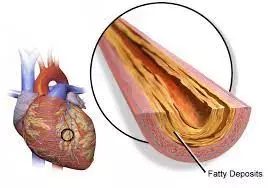- Home
- Medical news & Guidelines
- Anesthesiology
- Cardiology and CTVS
- Critical Care
- Dentistry
- Dermatology
- Diabetes and Endocrinology
- ENT
- Gastroenterology
- Medicine
- Nephrology
- Neurology
- Obstretics-Gynaecology
- Oncology
- Ophthalmology
- Orthopaedics
- Pediatrics-Neonatology
- Psychiatry
- Pulmonology
- Radiology
- Surgery
- Urology
- Laboratory Medicine
- Diet
- Nursing
- Paramedical
- Physiotherapy
- Health news
- Fact Check
- Bone Health Fact Check
- Brain Health Fact Check
- Cancer Related Fact Check
- Child Care Fact Check
- Dental and oral health fact check
- Diabetes and metabolic health fact check
- Diet and Nutrition Fact Check
- Eye and ENT Care Fact Check
- Fitness fact check
- Gut health fact check
- Heart health fact check
- Kidney health fact check
- Medical education fact check
- Men's health fact check
- Respiratory fact check
- Skin and hair care fact check
- Vaccine and Immunization fact check
- Women's health fact check
- AYUSH
- State News
- Andaman and Nicobar Islands
- Andhra Pradesh
- Arunachal Pradesh
- Assam
- Bihar
- Chandigarh
- Chattisgarh
- Dadra and Nagar Haveli
- Daman and Diu
- Delhi
- Goa
- Gujarat
- Haryana
- Himachal Pradesh
- Jammu & Kashmir
- Jharkhand
- Karnataka
- Kerala
- Ladakh
- Lakshadweep
- Madhya Pradesh
- Maharashtra
- Manipur
- Meghalaya
- Mizoram
- Nagaland
- Odisha
- Puducherry
- Punjab
- Rajasthan
- Sikkim
- Tamil Nadu
- Telangana
- Tripura
- Uttar Pradesh
- Uttrakhand
- West Bengal
- Medical Education
- Industry
Triglyceride glucose index associated with CAD severity in patients with CHD

Triglyceride glucose (TyG) index is associated with coronary artery disease (CAD) severity in patients with coronary heart disease (CHD) according to a recent study published in the Cardiovascular Diabetology
Triglyceride glucose (TyG) index is a new marker associated with atherosclerosis. This study aimed to assess the association between TyG index and the severity of coronary artery disease (CAD) in patients with coronary heart disease (CHD) and further explore the association between TyG index and CAD severity in different glucose metabolic states.
This multi-centre retrospective study included 731 patients with CHD between January 1, 2014 and September 30, 2020 in China. All patients were stratified into groups based on the tertiles of TyG index (T1: 5.48 ≤ TyG index ≤ 7.17; T2: 7.18 ≤ TyG index ≤ 7.76; T3: 7.77 ≤ TyG index ≤ 10.82). The number of diseased vessels [single-vessel and multi-vessel CAD (≥ 50% stenosis in ≥ 2 large vessels)] represented the severity of CAD, which was measured using coronary angiography (CAG). Glucose metabolic states were defined by the American Diabetes Association as normal glucose regulation (NGR), prediabetes mellitus (Pre-DM), and diabetes mellitus (DM).
Results
- The baseline analysis results showed significant differences in the clinical and biological characteristics of CHD patients according to TyG index tertiles
- Logistic regression analysis showed that the TyG index was significantly related to the risk of multi-vessel CAD
- The OR for multi-vessel CAD in TyG index T3 compared to that of T1 was 2.280
- Receiver operating characteristic (ROC) curve was generated to evaluate the accuracy of the TyG index in detecting the CAD severity, and the area under the curve (AUC) of the ROC plots was 0.601
- The association between TyG index and multi-vessel CAD was significant in patients with DM, achieving the highest OR among the different glucose metabolic states
Thus, TyG index was associated with CAD severity in patients with CHD, and an increased TyG index could identify patients with a high risk of multi-vessel CAD. There was an association between TyG index and CAD severity for the condition of DM.
Reference:
Triglyceride glucose index for the detection of the severity of coronary artery disease in different glucose metabolic states in patients with coronary heart disease: a RCSCD-TCM study in China by Jinyu Su, Zhu Li, et al. published in the Cardiovascular Diabetology
https://cardiab.biomedcentral.com/articles/10.1186/s12933-022-01523-7
Dr. Shravani Dali has completed her BDS from Pravara institute of medical sciences, loni. Following which she extensively worked in the healthcare sector for 2+ years. She has been actively involved in writing blogs in field of health and wellness. Currently she is pursuing her Masters of public health-health administration from Tata institute of social sciences. She can be contacted at editorial@medicaldialogues.in.


